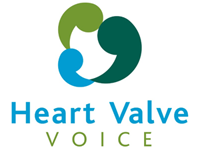Heart Valve Disease
QUICK LINKS
After you have been treated and are awaiting discharge from hospital, speak to your clinician about when your future appointments are and what they are in regards to. Together with your family and your healthcare team, you should agree on a timetable for monitoring your progress.
In the weeks and months after your appointment, you will have regular follow-ups with your clinician to ensure your recovery is progressing. It is important that you follow your recovery and rehab plans to ensure that you and your clinician have a good understanding of your progress.
During this time routine is key, and will help you notice any subtle changes in your health It is important that you report any changes in your condition to your clinician immediately.
Top Tips
Your doctor may suggest that you incorporate several heart-healthy lifestyle changes into your life. These changes will not only support your recovery but will also allow you and your clinician to monitor your progress. These changes include:
- Eating a heart-healthy diet. Eat a variety of fruits and vegetables, low-fat or fat-free dairy products, poultry, fish and whole grains. Avoid saturated and trans fats and excess salt and sugar.
- Maintaining a healthy weight. Aim to keep a healthy weight. If you’re overweight or obese, your doctor may recommend losing weight.
- Getting regular physical activity. Aim to include about 30 minutes of physical activity, such as brisk walks, in your daily fitness routine.
- Managing stress. Find ways to help manage your stress, such as through relaxation activities, meditation, physical activity, and spending time with family and friends.
- Avoiding tobacco. If you smoke, quit. Ask your doctor about resources to help you quit smoking. Joining a support group may be helpful.
Healthy Mind
The journey from diagnosis to treatment of heart valve disease provides a mental health challenge as much as a physical one. It is, therefore, essential that those affected by heart valve disease focus on the psychological aspects of their journey. More critical than ever that we do all that we can to support our mental wellbeing and promote a healthy mind.
Talking Therapies
Many people find talking therapies such as counselling and psychotherapy really helpful for managing their mental wellbeing. If you are interested in talking to someone, tell your GP, and they can refer you for therapies.
Alternatively, if you would like to talk to someone at Heart Valve Voice about fears and concerns you have regarding your valve disease journey, email info@heartvalvevoice.com and we can have your questions answered by a clinician or a member of our Patient Advocate Group who was previously treated by heart valve disease. However, please note that we will not be able to give any clinical advice regarding your specific case.
Mindfulness
Mindfulness has proven to be very successful in supporting mental wellbeing, and we were delighted to have Katie Sheen, from Soul Nutrition, join us to deliver her “Discovering Mindfulness’ webinar. Katie is an experienced Mindfulness teacher and has been curating workshops for students of all abilities for the last few years, you can access her gentle introduction to Mindfulness here, or go to her website to discover more about Mindfulness.
Click here to view our videos on Mindfulness
Tips for family, friends and carers
They will most likely be checked within four to six weeks following surgery for a post-operative visit. After that, it is critical to get regular check-ups by a heart specialist or your GP. Clarify with your valve clinic what symptoms would warrant a phone call or an additional recheck. Whenever they have questions or concerns or if they experience any unusual symptoms or changes in their overall health, it never hurts to call and ask.
Heart Valve Disease
QUICK LINKS



